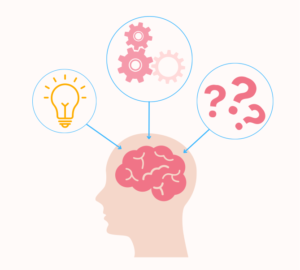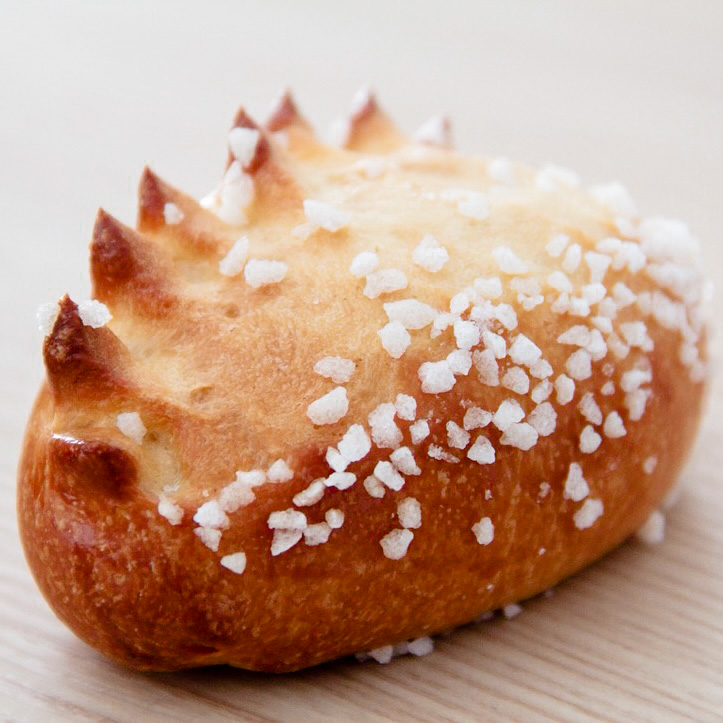« Memory is the sentinel of the mind. »
William Shakespeare
Hello, young Padawan
Today’s subject is to question us about the effects of sugar on the brain and, more particularly, memory. No more blah blah, lets go straight to the point.
On your marks, ready? Go.

This is a lemon pie. If you want the recipe, let me know.
Sugar, brain, and memory
Whether we are plants, animals, or human beings, we are all host organisms, namely holobionts hosting a community of bacteria, viruses, archaea (prokaryotes), and other microscopic fungi living in close collaboration. From the Greek holos, “everything,” and bios, “life,” a holobiont defines a natural living entity composed of a multicellular organism called a host (animal or plant) and its microbiota, in other words, the set of microorganisms that it hosts.
This interest for the scientific community is growing since we now know that the microbiota can directly influence the functioning of many of our organs, including the brain. So how is our brain functioning affected, and what about our memory?
The new generation of neuroscience researchers is taking on new challenges by opting for a resolutely modern approach that consists in apprehending the brain no longer as an isolated organ in its cranial box but as constantly exchanging information with the other systems of the body.
In this chapter, we will discover a very interesting study* carried out on rats and see what happens to memory when sugar consumption, or not, is involved.
Sugar and memory
As seen previously in our chapter on our daily needs and intakes, many so-called civilization diseases are induced by excessive consumption of carbohydrates. In addition, the effects produced on the brain are less known but real.
A study* published in the Translational Psychiatry journal on young rats reveals that high sugar consumption during adolescence impairs adult learning and memory abilities. Indeed, researchers at the University of California, Los Angeles have discovered a negative impact on memory, through the gut microbiota, by testing these young adolescent rats who had free access to a sugary drink comparable to those commonly consumed by the man.
Thus, it has been shown that excessive consumption of sugars disrupts cognitive processes because animals fed with a sugar solution early in life have a reduced ability to distinguish a new object in a specific context in adulthood. ; indicating impaired episodic, hippocampal-dependent contextual memory function.

Noble et al., Translational Psychiatry
Sugar and the microbiota, what are the mechanisms of interaction with the brain?
Still, concerning this study and with the same groups of animals, a particular type of intestinal bacteria multiplying in contact with sugar has been highlighted: parabacteroids (a type of bacteria resistant to bile, editor’s note). By studying, in a second step, the intestinal microbiota of the two groups of animals, the researchers observed significant differences and, in particular, a high abundance of this family of bacteria in the rats having consumed the sugary drink. They then investigated whether these bacteria could be the cause of the observed memory deficit.
Neuroscientists found that hippocampal-dependent memory was also affected in adulthood by experimentally increasing these bacteria in the gut of juvenile rats that had not consumed sugar in adolescence. These results show that a family of bacteria alone is enough to cause cognitive deficits in the same way as sugar.
Indeed, rats exposed to parabacteroids (whether in the form of transfer of bacteria into the microbiota or by overconsumption of sugar) see the cells of their hippocampus change their expression of genes that are directly involved in the signaling cascade linked to dopamine, a neurotransmitter mainly involved in the brain’s reward system. However, this dopamine modulates the activity of our brain’s neurons and, therefore, those of our hippocampus. It is, therefore, possible that the alteration of the dopaminergic cascade can modify the functions of our hippocampus in adulthood and, consequently, our memory when we consume too much sugar when we are young.
This study thus identifies a correlation between sugar consumed at the beginning of life and denatured intestinal microbiota when the brain (and, in particular, the hippocampus) is still in full development, with, as a consequence, an impairment of memory. However, if the microbiota modification has to do with the deterioration of memory in rats, common sense suggests this could also be the case in humans.
Inflammation, a major challenge for the brain.
As soon as the taste buds recognize the sweet taste, the brain is alerted, the prefrontal cortex activates, and the reward pathways in the brain fire up, triggering the release of the reward and pleasure hormone dopamine. This sends a signal to our brain to remember that pleasant feeling. As with any addiction, this is how it all begins.
The problem comes when we overeat sugar because our brain’s reward system is activated chronically. Excessive stimulation of this reward system triggers several adverse reactions in our brain and body, such as reactive hypoglycemia. We then risk wanting it every day, as often as possible.
Brain fog, irritability, fatigue, and mood swings begin to set in, leaving the subject in real disarray. When the glucose level in the blood drops following reactive hypoglycemia, bad mood, depression, and anxiety happen. The subject also feels very tired and feels this feeling of “sleepy mood,” which makes us want to nap after meals. Mental fog, that is to say, the impression of not being able to concentrate, is well known in periods when individuals consume too much sugar, such as the end of the year celebrations, for example. Fortunately, all of this returns to normal within a few days, provided that blood sugar normalizes. However, in just thirty years, inflammatory diseases have soared exponentially. Chronic pathologies, autoimmune diseases, or so-called civilization ailments have a common denominator: inflammation.
Food is obviously implicated, and this, on various factors such as pesticides and gluten, but sugars, in particular industrial fructose, is often incriminated and even named “public toxin number one” by many doctors, including Dr. Robert Lustic in his book “Sugar, the bitter truth.” Thus, inflammation due to an overconsumption of carbohydrates does not mix well with our brain — We then speak of “cerebral inflammation.”

Graphic design by my colleague Luna — all rights reserved*.
In his book “Ces glucides qui menacent notre cerveau” — These Carbohydrates that threaten our brain, Dr. David Perlmutter specifies that Dr. Eric Steen and his team have likened Alzheimer’s disease to “type 3 diabetes”. Thus, the sugar consumed in excess would create cerebral inflammation, caused in particular by glycation phenomena, to end up, over time, creating severe lesions. This has also been demonstrated in many former alcoholics (their heavy consumption of alcohol, and therefore of sugars, has made brain damage for many of them, visible on MRI).
The phenomenon of glycation, related to the Maillard reaction, causes our glucose molecules to caramelize. We then say that this molecule is glycated, meaning damaged. This process, both normal and inevitable, takes place throughout our body, including our brain. If we cannot stop it because it is a normal phenomenon of our aging, we can speed it up or slow it down through our food and lifestyle choices. However, the more we load our body with sugars, the more glycation occurs, knowing that each glycated molecule is damaged irreversibly.
As we have seen in the previous chapters of our dossier, we now know that too many carbohydrates disturb our metabolism, particularly by the secretion of insulin in too large quantities. In addition, a correlation link is now also established between blood sugar and brain diseases because the overconsumption of sugar increases the risk of cognitive decline and because the excess of carbohydrates in adolescence slows down the brain and affects memory and learning in adulthood, in addition to insulin resistance. However, insulin plays a key role in strengthening synaptic connections between brain cells, essential for good communication between neurotransmitters and memory, such as acetylcholine, which can retain information, store it and find it. Thus, when insulin production decreases, cognitive processes may also suffer; the facts clearly indicate that the brain is one of the main victims of high sugar consumption.
Finally, insulin is also an anabolic hormone that promotes fat retention and leads, again, to inflammation. Consequently, insulin resistance, induced by reactive hypoglycemia and an overproduction of insulin to respond to it, plays a major role in developing Alzheimer’s disease by favoring the appearance of senile plaques (or plaques amyloid), in diseased brains.
As Dr. Perlmutter explains in his book, Alzheimer’s-type brain disease is called type 3 diabetes because, as part of their sugar intake, the patient has:
– lived with chronic hyperglycemia, even in the absence of any diabetes,
consumed too many carbohydrates throughout his life.
Two factors, independent of this, must also be taken into account:
– the patient favored a diet low in fat, which lowers cholesterol levels,
– he omitted an intolerance to gluten, a protein in wheat, rye, and barley.
Thus, obese people are more likely to suffer from brain disorders, and obese and diabetic subjects have twice the risk of developing Alzheimer’s disease. Be careful, however: Alzheimer’s is not due to diabetes, but these two diseases have the same origin. They are generated by foods that force the body to put biological mechanisms in place, resulting in inflammation, dysfunction, and pathology.
In conclusion, we can decide on the fact that our intestinal microbiota has a significant role in our cognitive neuro-development. Indeed, if we know today that our microbiota is essential to our emotional balance, our brain, and its internal state also have an impact on the development of our intestinal flora, which in turn affects our brain and our mood. And what is relevant to our emotional state is also suitable for our cognition, thinking and memory.
Sugar could impact the development of our brain when we are young by damaging our learning and memory abilities. And this over the long term, even when we reach adulthood. The more sugar we consume when we are young, the less memory we have as adults.
Finally, inflammation, mainly through our blood sugar levels, is a significant issue for our brain health.
* If you want to use his services as a graphic designer, contact me through the blog contact form or through the comments.
Biblio :
Fédération pour la recherche sur le cerveau – Mécanismes d’interactions entre microbiote et cerveau.
*« Gut microbial taxa elevated by dietary sugar disrupt memory function. » Noble, E. E., Olson, C. A., Davis, E., Tsan, L., Chen, Y. W., Schade, R., … & Kanoski, S. E. (2021). Gut microbial taxa elevated by dietary sugar disrupt memory function. Translational Psychiatry, 11(1), 194.
Ces glucides qui menacent notre cerveau – Dr David Perlmutter, ed Poche Marabout.
Sucre, l’amère vérité – Dr Robert Lustic, ed Thierry Souccar.
The Obesity code – Dr Jason Fung, ed Scribe.
Faites votre glucose révolution – Jessie Inchauspé, ed Robert Laffont.
Nos pensées – Les effets nocifs du sucre sur le cerveau
Fédération pour la recherche sur le cerveau – Enfants et ados.
Le microbiote intestinal participe au fonctionnement du cerveau et à la régulation des humeurs

The punk brioche. One recipe, different models possible. That’s the fun thing about baking.

